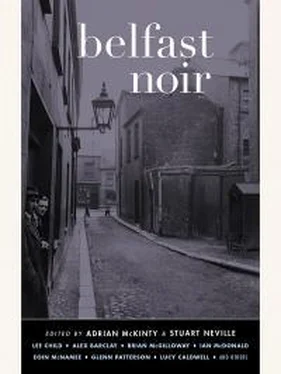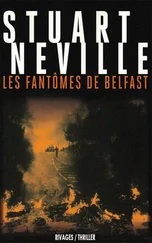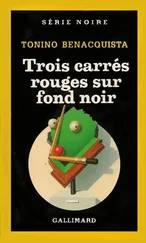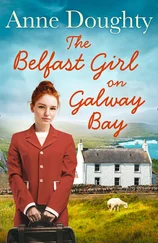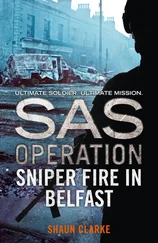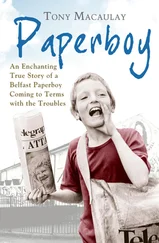“But?” I said.
“He’s not spinning it that way. And all those people died of cancer. The Robinsons, and the Donnellys, and the McLaughlins.”
“So?” I said.
“The warhead was real. That was an atom bomb. He sold nuclear weapons.”
“Small ones,” I said. “And obsolete.”
Carter didn’t reply. But that wasn’t the important part. The important part came five minutes later. I saw it arrive in his eyes. I said, “Ask the question.”
He said, “I’d rather not.”
I said, “Ask the question.”
“Why was there a gun in the bathroom? The Special Branch guy was with us the whole time. You didn’t call ahead for it. You had no opportunity. But it was there for you anyway. Why?”
I didn’t answer.
He said, “It was there for me. The Special Branch guy was happenstance. Me, you were planning to shoot all along.”
I said, “Kid, our boss sold live nuclear weapons. I’m cleaning up for him. What else do you expect?”
Carter said, “He trusts me.”
“No, he doesn’t.”
“I would never rat him out. He’s my hero.”
“Gerald McCann should be your hero. He had the sense not to use the damn thing. I’m sure he was sorely tempted.”
Carter didn’t answer that. Getting rid of him was difficult, all on my own, but the next hours were peaceful, just me and the pilot, flying high and fast toward a spectacular sunset. I dropped my seat way back, and I stretched out. Relaxation is important. Life is short and uncertain, and it pays to make the best of whatever comes your way.
TAKING IT SERIOUS
BY RUTH DUDLEY EDWARDS
Falls Road
Ach, Marty just takes things a bit serious,” said Mrs. O’Gorman.
“But it can’t be good for him to be stuck indoors all day, Maria. He needs to be with boys of his own age kicking a ball around the park.”
Mrs. O’Gorman said nothing but bent her head and began to hunt for offending bobbles on her cardigan. As she located a couple and pulled them off, her sister Patsy, recognising they had moved into a familiar cul-de-sac, shrugged, gave her a peck on the cheek, got into her car, and drove away with a half-hearted wave.
Mrs. O’Gorman went back into her house and looked at her younger son, who was still hard at work updating his montage of photographs. Not for the first time, she gave thanks to Jude, her favourite saint, that the days of screaming fits about the frustrations of glue or Blu-Tack or pins were over since his Uncle Joe had given him an infinitely flexible press-on and peel-off adhesive. Carefully, Marty plucked an image from the left-hand side and stuck it on the right, but after a moment’s consideration, he moved it back to where it had been. He showed no sign of knowing she was there.
“Are you sure you wouldn’t like to go out for a wee while?” she asked eventually. “Aunty Patsy says your cousins’ll be there for another hour or two. And then youse could all go to McDonald’s. I’ll give you the money.”
He didn’t raise his head. “Don’t want to.”
Despite her better judgement, she persisted: “But you’ve no reason to be doing that now. Didn’t everyone say it was grand on Sunday?”
“That was last Sunday.”
“So what’s different?”
“This is for next Sunday.”
“But isn’t it only another wee procession?”
He looked up and his face darkened. “Don’t call it that, Ma. They’re commemorations.”
“Oh, sorry, son.” She paused and tried to get the language right. “I mean, why do you need to change your pictures about for another wee commemoration? Aren’t they all commemorating the same wee army?”
The O’Gormans’ next-door neighbour was on the phone when she heard screaming and the sounds of breaking china. “That nutter Marty’s at it again,” she told her daughter. “Shouting and breaking things. Why can’t Maria just shut up instead of setting him off? If she’s not careful he’ll kill her one of these days.”
* * *
Mrs. O’Gorman used the spare key Marty didn’t know she had to sneak nervously into his bedroom. Although the taxi wouldn’t be dropping him home till three, she could never shake off the terrible memory of the day he’d found her sitting on his bed when he’d been sent home early after he’d lost it badly with the special needs teacher. They wouldn’t do that again without warning her, the head had promised, and since then she’d always had notice, but it would take only one mistake. It had taken weeks for her face to heal and for his wrist to mend that last time after he threw the laptop through the window. That had been a bit of a blessing, though, since he hadn’t the strength to do any more wrecking.
She knew her need to check out his room every day seemed to be nearly as compulsive as one of his routines, but still, every morning at eleven, telling herself she shouldn’t, she did. Somehow, there was comfort in being in his place with his things around her, without him there to get hysterical in case she touched something she shouldn’t.
As usual, everything was in complete order. Like she sometimes said defensively to Patsy, she wasn’t saying there weren’t problems with Marty, but wasn’t it a rare blessing to have a teenage boy who made his bed perfectly, hung up the clothes when she’d pressed them, coordinated his socks, kept his books and knickknacks neat, and didn’t go out getting drunk or taking drugs or running after girls? She hadn’t said “unlike your Conor,” but they both knew that was what she meant. And neither had she said how much handsomer and cleverer Marty was than any of Patsy’s three boys. Didn’t the school say if he held it together he’d get some great exam results in maths and science?
The new version of the montage that had caused yesterday’s trouble was in its place over Marty’s wee shrine to his heroes. It was a miracle it hadn’t been damaged along with everything else that had been within his reach. Mrs. O’Gorman shook her head. Poor lad. It wasn’t his fault he had a syndrome. And now that she’d no wee treasures left, it didn’t really matter that a few oul’ mugs and plates got broke. Sure they were cheap to replace, so they were.
She took a closer look at the montage. All around the edges were the familiar photos of Patrick Pearse and James Connolly and the others who had signed that thing in Dublin in Easter 1916 saying we were free. What was it called? She caught sight of one of the mugs that hung beside her. Oh, yes, there were the same men beside a document with a big headline saying, IRISH REPUBLIC. The Proclamation, that’s what it was. A dull-looking document she’d never read but she knew was like the Bible to Republicans. She should know what was in it, of course. Since Marty’d learned it off by heart he must have recited it to her a dozen times, but you couldn’t really listen. Wasn’t he always reciting?
The fellas who had signed it weren’t much to look at, she thought. Not like that Big Lad, Michael Collins, swaggering in his uniform—now there was a fine figure of a man. Used to him being a constant, she was surprised to see him missing. In his usual place there was a skinny young lad in uniform with round specs she’d never seen before. And in the middle—in pride of place—there was just one of Marty’s sketches, this time of a Celtic cross with white decorations; he’d written Seamus Harvey on one arm and Gerard McGlynn on the other. The names meant nothing to her, but she supposed they were two more young lads who’d died for Ireland. She recited her mantra—“Sure weren’t they some poor mothers’ sons”—and thought how lucky she was she’d never lost anyone that way. It was bad enough that she’d been widowed so early, but at least her husband had a peaceful end with that heart attack and he looked lovely in his coffin. Not the way he’d have been if he’d been shot or blown up or starved to death. Sure, Joe had done a spell in jail after he was caught with the guns, but it was a long time ago and being a community worker seemed to suit him. And though she was lonely for her Cormac since he’d gone to Canada, he was doing great and he was safe.
Читать дальше
